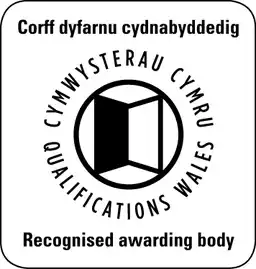The skills challenges facing the UK’s nuclear energy industry
Published on: 21 Jun 2024
Share on:

Nuclear power is an important part of the UK’s energy strategy now and for the future. While it currently accounts for nearly 15% of electricity generation, the government’s Nuclear Roadmap aspires to raise that figure to 25% by 2050.
Alongside solar and wind, nuclear will have a significant role to play in the net zero transition, providing reliable, renewable, and affordable power while reducing the UK’s dependence on fossil fuel imports and ensuring energy security in the years to come.
The civil nuclear industry accounts for an estimated £16.1 billion GVA (gross value added), more than £7 billion in tax revenue, and roughly 211,500 skilled jobs, providing strong arguments for investing in the industry’s future. But if the UK is to reap the benefits of nuclear, and provide sustainable energy and employment for the future, we must reckon with a number of pressing challenges. Perhaps foremost among them: a growing nuclear skills gap.
New build nuclear needs more skilled workers
In the past year, the government has launched Great British Nuclear (GBN) – the aim of which is to put the UK ahead in the ‘global race’ to develop the sector – and published the Nuclear Roadmap, which promises funding for both large plants and small modular reactors (SMRs). Alongside the AUKUS nuclear submarine partnership, these initiatives signal a significant period of growth for the UK’s nuclear sector, but for such growth to remain sustainable new reactors will need to be built, and the nuclear workforce will need the skills to build them. To maximise the economic benefits of these investments, we will also need a UK supply chain capable of providing the products, components and professional services required.
Recent development efforts have been disrupted by spiralling expenses, delayed schedules, and geopolitical hurdles. The construction costs for Hinkley Point C – a large-scale reactor with the capacity to power six million homes – have increased by 30% to £33 billion since 2015, and the project is now seven years overdue.
Another large-scale reactor, Sizewell C, is currently in the funding stage and expected to take nine years to build after the development recently agreed a multi-billion euro deal with nuclear plant equipment specialists Framatome.
In order to bring these and other nuclear projects to completion without further delays or avoidable costs, it is essential that the UK has a skilled nuclear workforce, as well as the resources and infrastructure to maintain a pipeline of skilled workers for the future. Unfortunately, this is not currently the case.
Why is there a nuclear skills shortage?
The government has acknowledged that if the UK is to meet its target of 25% nuclear generation by 2050 the nuclear workforce must double to support roughly 80,000 skilled jobs in the next 20 years. But the last couple of decades have seen a gradual decline in experienced nuclear professionals, presenting a significant challenge for the future.
Part of the problem is the UK’s ageing workforce. Many skilled nuclear workers are nearing retirement age, and the 2014 Nuclear Workforce Assessment (NWA) was already forecasting an annual loss of nearly 4,000 workers a decade ago. While the NWA 2023 shows there are now more young people coming into the nuclear sector, most of them are employed in defence, while civil projects are disproportionately attended by workers liable to retire in the near future.
Compounding the problem, skills in the existing workforce are overwhelmingly oriented towards operation and maintenance rather than commissioning and construction, and advances in nuclear technology and strategy continue to create demand for whole new sets of skills, for example with Small Modular Reactors (SMRs).
There is also a separate and significant skills gap when it comes to supply chains. If the development of new sites is to be successful, the UK will need local and reliable sources of parts and components. Without developing nuclear skills among small manufacturers, larger companies and initiatives are likely to struggle.
Filling the UK’s nuclear skills gap
Supporting GNB’s overall goals, the government’s Nuclear Skills Taskforce is designed to “turbo charge skills activity in the nuclear sector,” and will look to develop a skills strategy that will support the sector’s growth and attract more international talent. This will involve boosting the place of nuclear in the school curriculum, developing an early careers pipeline, and promoting the benefits of careers in nuclear.
Another new initiative – Destination Nuclear – aims to target workers with transferable skills and support nuclear apprenticeships and graduate schemes, while the nuclear roadmap’s promise of up to £300 million to support domestic production of high-assay low-enriched uranium (HALEU) – the required fuel for most advanced modular reactors – will help introduce whole new skills to the UK’s workforce.
Crucially, any successful strategy for building a skilled nuclear workforce for the future will also require new nuclear qualifications, apprenticeships, and assessments that can attract workers and equip them for their careers.
As a leading skills partner for the UK’s engineering sector and related industries, EAL is dedicated to tackling the industry-wide issue of skills gaps and providing high-quality assessments and qualifications. This includes nuclear skills shortages, and in the coming months and years, we look forward to developing programmes and strategies that will support the UK’s nuclear sector, power millions of British homes, and ease the country’s path to net zero.
To keep updated with EAL’s work, sign up to our newsletter.
More news articles
Subscribe to our free newsletter
Get the latest news about EAL’s qualifications, assessments and skills solutions, plus important centre service and support updates.
Your work email*




